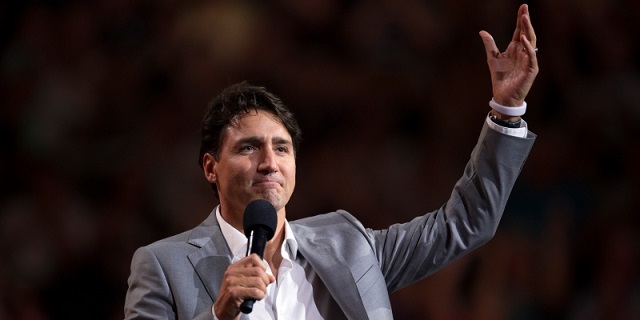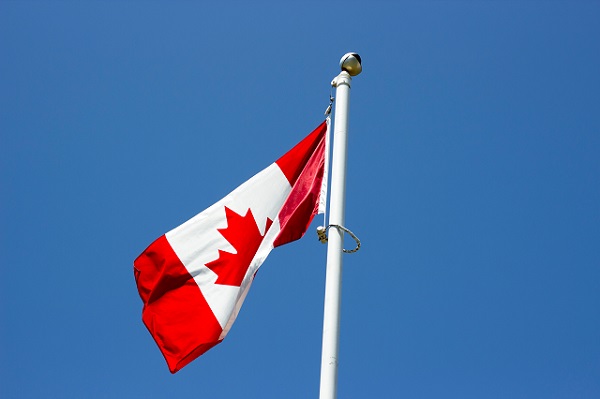Alberta
Alberta fuel tax hike coming same day as carbon tax hike

News release from the Canadian Taxpayers Federation
The Canadian Taxpayers Federation is urging the Alberta government to scrap its fuel tax hike planned for April 1.
“The Trudeau government is already slapping us with a carbon tax hike and the last thing Albertans need is to be punched by their own provincial government,” said Kris Sims, CTF Alberta Director. “You can’t tear a strip off the prime minister for jacking up his carbon tax and turn around and hike your own fuel tax by even more on the same day, what gives?”
Right now, the provincial fuel tax costs nine cents per litre.
The Alberta government quietly noted in its 2024-25 budget that it’s planning on hiking the provincial fuel tax back up to 13 cents per litre of gasoline and diesel starting April 1.
In the same budget document, the Alberta government reported that fully suspending the fuel tax saved Alberta taxpayers about $1 billion per year.
The CTF questions the need to reinstate the fuel tax since the province reports: “fuel tax revenue is not dedicated to funding construction and maintenance of provincial roads.”
At full cost, the provincial fuel tax adds on about $10 per fill up for a minivan, about $15 for a pickup truck and about $130 extra for a big rig truck using diesel.
The federal carbon tax is also set to jump up at the end of the month.
At $80 per tonne, the carbon tax will cost 17 cents per litre of gasoline, 21 cents per litre of diesel and 15 cents per cubic metre of natural gas.
The Parliamentary Budget Officer calculates the average Alberta family will be out more than $900 this year due to the carbon tax, even with rebates factored in.
“Albertans are counting on their provincial government to shield them against Trudeau’s carbon tax and instead they are getting a provincial tax hike at the pumps, too,” said Sims. “It’s a mystery why the NDP government in Manitoba has suspended its provincial fuel tax, saving drivers 14 cents per litre, but Albertans are seeing their fuel taxes going back up.”
Alberta
Former senior financial advisor charged with embezzling millions from Red Deer area residents

News release from Alberta RCMP
Former senior financial advisor charged for misappropriating nearly $5 million from clients
On April 4, 2024, the RCMP’s Provincial Financial Crime Team charged a Calgary resident for fraud-related offences after embezzling millions of dollars from his clients while serving as a senior financial advisor.
Following a thorough investigation, the accused is alleged to have fraudulently withdrawn funds from client accounts and deposited them into bank accounts he personally controlled. A total of sixteen victims were identified in the Red Deer area and suffered a combined loss of nearly $5 million.
Marc St. Pierre, 52, a resident of Calgary, was arrested and charged with:
- Fraud over $5,000 contrary to section 380(1)(a) of the Criminal Code; and,
- Theft over $5,000 contrary to section 344(a) of the Criminal Code.
St. Pierre is scheduled to appear in Red Deer Provincial Court on May 14, 2024.
“The ability for financial advisors to leverage their position to conduct frauds and investment scams represents a significant risk to the integrity of Alberta’s financial institutions. The investigation serves as an important reminder for all banking clients to regularly check their accounts for any suspicious activity and to report it to their bank’s fraud prevention team.”
- Sgt. John Lamming, Provincial Financial Crime Team
The Provincial Financial Crime Team is a specialized unit that conducts investigations relating to multi-jurisdictional serious fraud, investments scams and corruption.
Alberta
Political parties will be part of municipal elections in Edmonton and Calgary pilot projects

Strengthening Alberta’s local elections
Alberta’s government is introducing legislation to ensure Albertans can rely on transparent, free and fair elections, and municipally-elected officials have clearer accountability measures.
In a democratic society, Albertans expect their local elections to be free and fair, and their elected officials to be held to account by clear rules that govern their local councils. The Municipal Affairs Statutes Amendment Act proposes amendments to the Local Authorities Election Act (LAEA) and the Municipal Government Act (MGA) to add greater transparency to local election processes and ensure local councils and elected officials continue to remain accountable to the citizens who elected them.
“Our government is committed to strengthening Albertans’ trust in their local governments and the democratic process that elects local leaders. The changes we are making increase transparency for Alberta voters and provide surety their votes will be counted accurately. We know how important local democracy is to Albertans, and we will work with local authorities to protect and enhance the integrity of local elections.”
Local Authorities Election Act
Albertans expect free and fair elections and that’s why it’s important we strengthen the rules that govern local elections. To strengthen public trust in local elections, Alberta’s government will eliminate the use of electronic tabulators and other automated voting machines. All Albertans should be able to trust the methods and results of local elections; requiring all ballots to be counted by hand, clarifying rules and streamlining processes for scrutineers will provide voters greater assurance in the integrity of the results.
All eligible Albertans should be able to vote in local elections without impediment. Alberta’s government will limit the barriers for eligible voters to cast a ballot by expanding the use of special ballots. Currently, special ballots can only be requested for very specific reasons, including physical disability, absence from the municipality, or for municipal election workers. By expanding the use of special ballots, the government is encouraging more voter participation.
Amendments in the Municipal Affairs Statutes Amendment Act would increase transparency in local elections by enabling political parties at the local level. Political parties would be enabled in a pilot project for Edmonton and Calgary. The act will not require candidates to join a political party in order to run for a local or municipal office, but will create the opportunity to do so.
In addition, proposed changes to the Local Authorities Election Act would allow municipalities the option to require criminal record checks for local candidates, thus increasing transparency and trust in candidates who may go on to become elected officials.
Municipal Government Act
The role of an elected official is one with tremendous responsibility and expectations. Changes proposed to the Municipal Government Act (MGA) will strengthen the accountability of locally elected officials and councils. These include requiring mandatory orientation training for councillors, allowing elected officials to recuse themselves for real or perceived conflicts of interest without third-party review and requiring a councillor’s seat to become vacant upon disqualification.
If passed, the Municipal Affairs Statutes Amendment Act will also unlock new tools to build affordable and attainable housing across Alberta. Proposed amendments under the MGA would also create more options for municipalities to accelerate housing developments in their communities. Options include:
- Exempting non-profit, subsidized affordable housing from both municipal and education property taxes;
- Requiring municipalities to offer digital participation for public hearings about planning and development, and restricting municipalities from holding extra public hearings that are not already required by legislation; and
- Enabling municipalities to offer multi-year residential property tax exemptions.
Municipal Affairs will engage municipalities and other partners over the coming months to hear perspectives and gather feedback to help develop regulations.
Quick facts
- The LAEA establishes the framework for the conduct of elections in Alberta municipalities, school divisions, irrigation districts and Metis Settlements.
- The MGA establishes the rules governing the conduct of local elected officials once on council, as well as the overall administration and operation of municipal authorities in Alberta, including any policy those authorities may wish to implement.
Related information
-

 Business2 days ago
Business2 days agoTaxpayers criticize Trudeau and Ford for Honda deal
-

 Business2 days ago
Business2 days agoDon’t be fooled by high-speed rail
-

 Alberta2 days ago
Alberta2 days agoActivity-Based Hospital Funding in Alberta: Insights from Quebec and Australia
-

 Business2 days ago
Business2 days agoUN plastics plans are unscientific and unrealistic
-

 Addictions2 days ago
Addictions2 days agoBritish Columbia should allow addicts to possess even more drugs, federal report suggests
-

 Fraser Institute2 days ago
Fraser Institute2 days agoCanadians should decide what to do with their money—not politicians and bureaucrats
-

 Alberta2 days ago
Alberta2 days agoAlberta rejects unconstitutional cap on plastic production
-

 Censorship Industrial Complex1 day ago
Censorship Industrial Complex1 day agoAustralian politicians attack Elon Musk for refusing to remove video of Orthodox bishop’s stabbing








